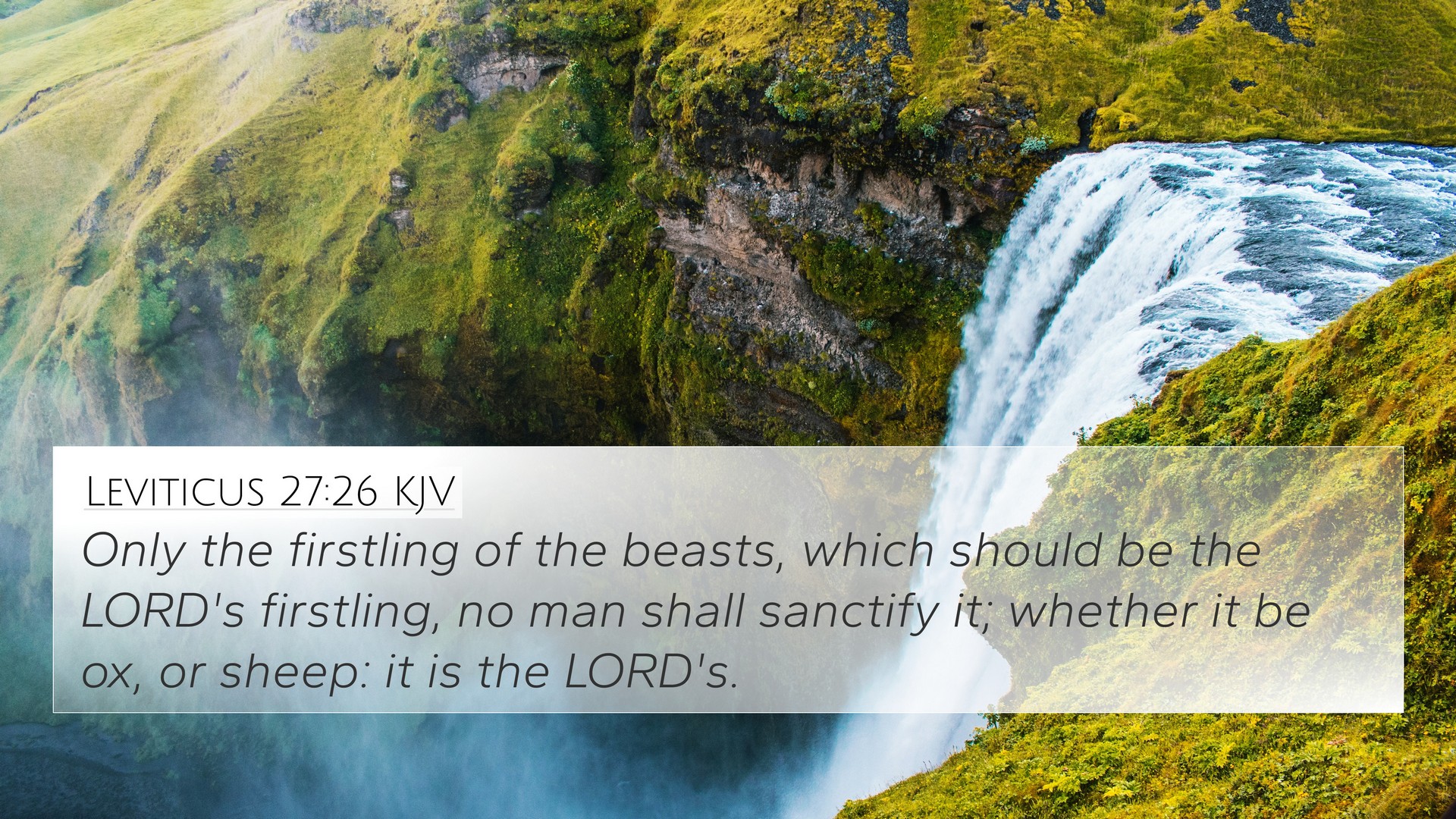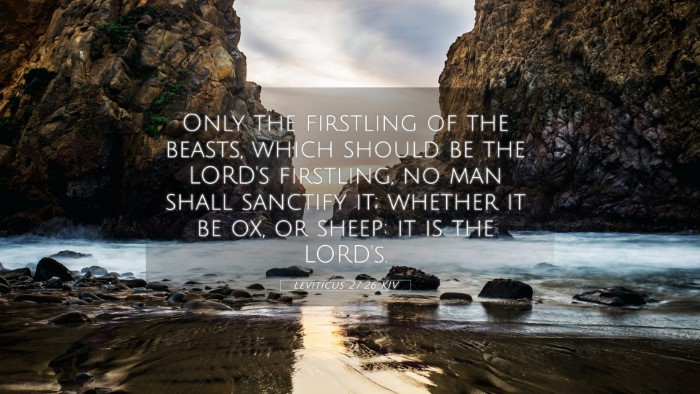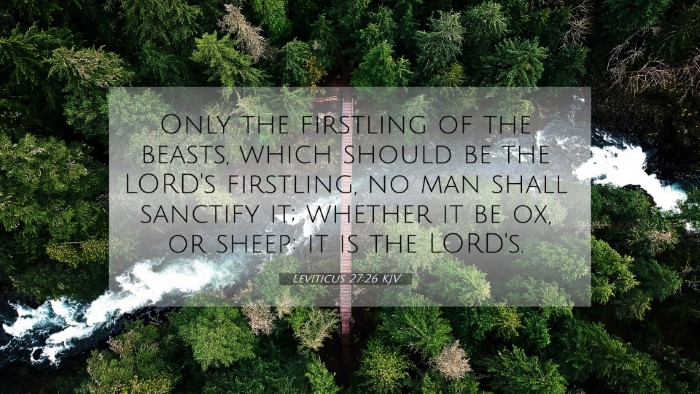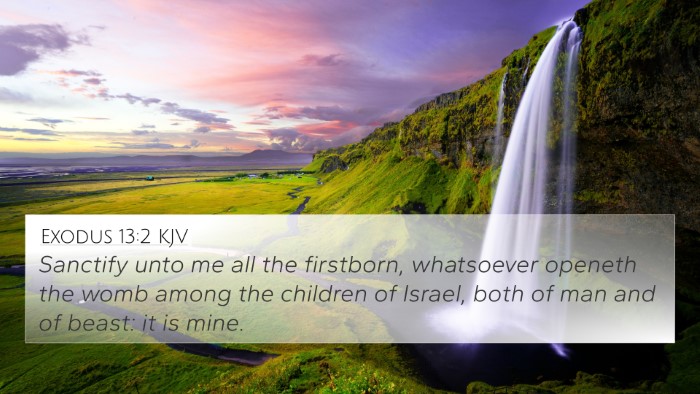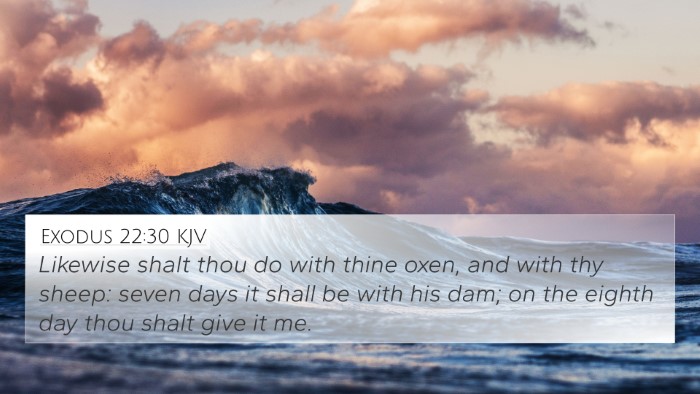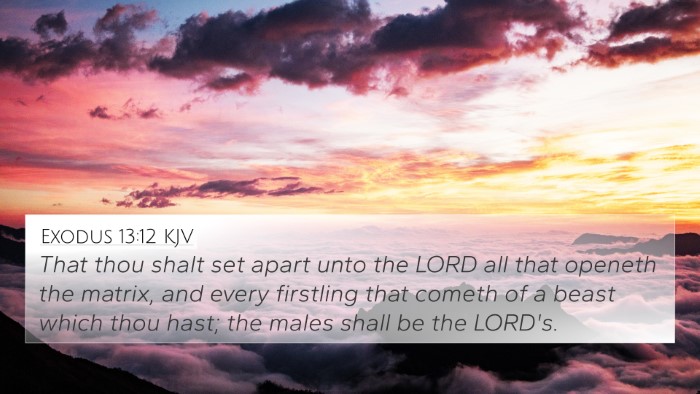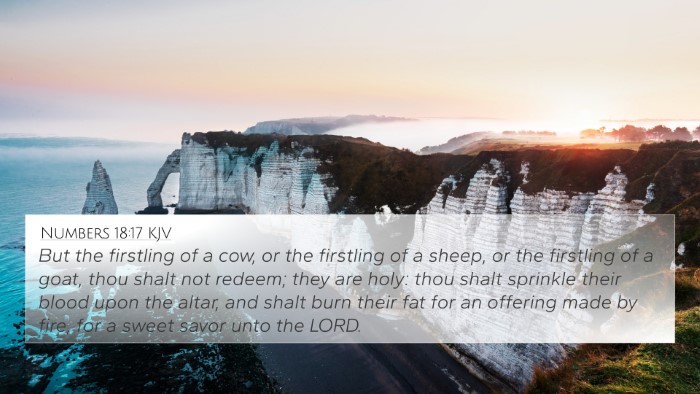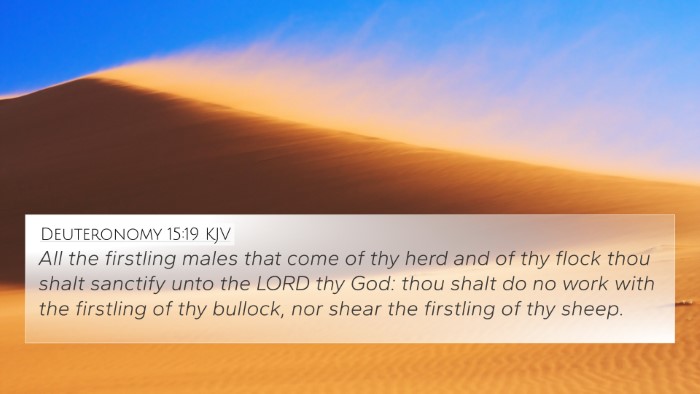Understanding Leviticus 27:26
Leviticus 27:26 states: "Only the firstling of the beasts, which should be the Lord's firstling, no man shall sanctify it; whether it be ox, or sheep: it is the Lord's."
Summary of Meaning
This verse expresses the principle of devotedness to God, particularly the firstborn animals which were to be set apart for Him. In the context of Israel's sacrificial system, it reflects an important understanding of offerings and dedicating the best to God.
Commentary Insights
-
Matthew Henry's Commentary:
Henry emphasizes that the firstborn is inherently God's due, highlighting the sacredness and ownership God has over all creation. The firstlings being designated for the Lord indicates a recognition of God's sovereignty and blessing in giving life to these animals.
-
Albert Barnes' Notes:
Barnes elucidates the idea that the firstborn symbolizes the best that one has to offer. The withholding of this offering would be akin to withholding one's best from God. Barnes connects this to the broader theme of stewardship and sacrificial giving in the Christian life.
-
Adam Clarke's Commentary:
Clarke underscores the importance of the firstlings in the sacrificial system, noting that they represent the very best offerings that should be made to God. He also makes connections to the cultural practices of surrounding nations, where offerings were often made to deities, and reinforces Israel's unique identity in making such offerings to Yahweh.
Cross-References
Leviticus 27:26 connects with several other Bible verses that share similar themes of dedication and sacrifice. Here are some notable cross-references:
- Exodus 13:2: "Sanctify unto me all the firstborn, whatsoever openeth the womb among the children of Israel, both of man and of beast: it is mine."
- Exodus 34:19: "All that openeth the matrix is mine; and every firstling among thy cattle, whether ox or sheep, that is male."
- Numbers 18:15: "Every thing that openeth the matrix in all flesh, which they bring unto the Lord, whether it be of men or beasts, shall be thine: nevertheless the firstborn of man shalt thou surely redeem, and the firstling of unclean beasts shalt thou redeem."
- Deuteronomy 15:19: "All the firstling males that come of thy herd and of thy flock thou shalt sanctify unto the Lord thy God: thou shalt do no work with the firstling of thy bullock, nor shear the firstling of thy sheep."
- 1 Samuel 15:22: “And Samuel said, Hath the Lord as great delight in burnt offerings and sacrifices, as in obeying the voice of the Lord? Behold, to obey is better than sacrifice, and to hearken than the fat of rams.”
- Hebrews 9:12: "Neither by the blood of goats and calves, but by his own blood he entered in once into the holy place, having obtained eternal redemption for us."
- Romans 12:1: "I beseech you therefore, brethren, by the mercies of God, that ye present your bodies a living sacrifice, holy, acceptable unto God, which is your reasonable service."
Thematic Connections
The theme of dedicating the first and best to God is prevalent throughout the scriptures. This practice illustrates the underlying principle of spiritual devotion and the acknowledgment of God’s provision. Not only does Leviticus 27:26 frame the sacrificial practice for the Israelites, but it establishes a precedent for the New Testament understanding of sacrifice and offering oneself to God.
Tools for Bible Cross-Referencing
For those interested in further exploring the vast interconnections of scripture, tools such as a Bible concordance or a Bible cross-reference guide can be invaluable. These resources help readers identify connections between Bible verses, making it easier to engage in a comparative Bible verse analysis.
How to Utilize Cross-References
Understanding how to use Bible cross-references effectively can enhance your study and interpretation of scripture. By examining Bible verses that relate to each other, one can gain a broader context and a deeper insight into God's message throughout the Bible.
Conclusion
Leviticus 27:26 serves as a powerful reminder of the importance of dedicating the best offerings to God. The sacrificial system highlights God's demand for holiness and the principle of putting God first in all things. By engaging with cross-references and exploring inter-Biblical dialogues, believers can enrich their understanding and application of these biblical truths in their lives.
